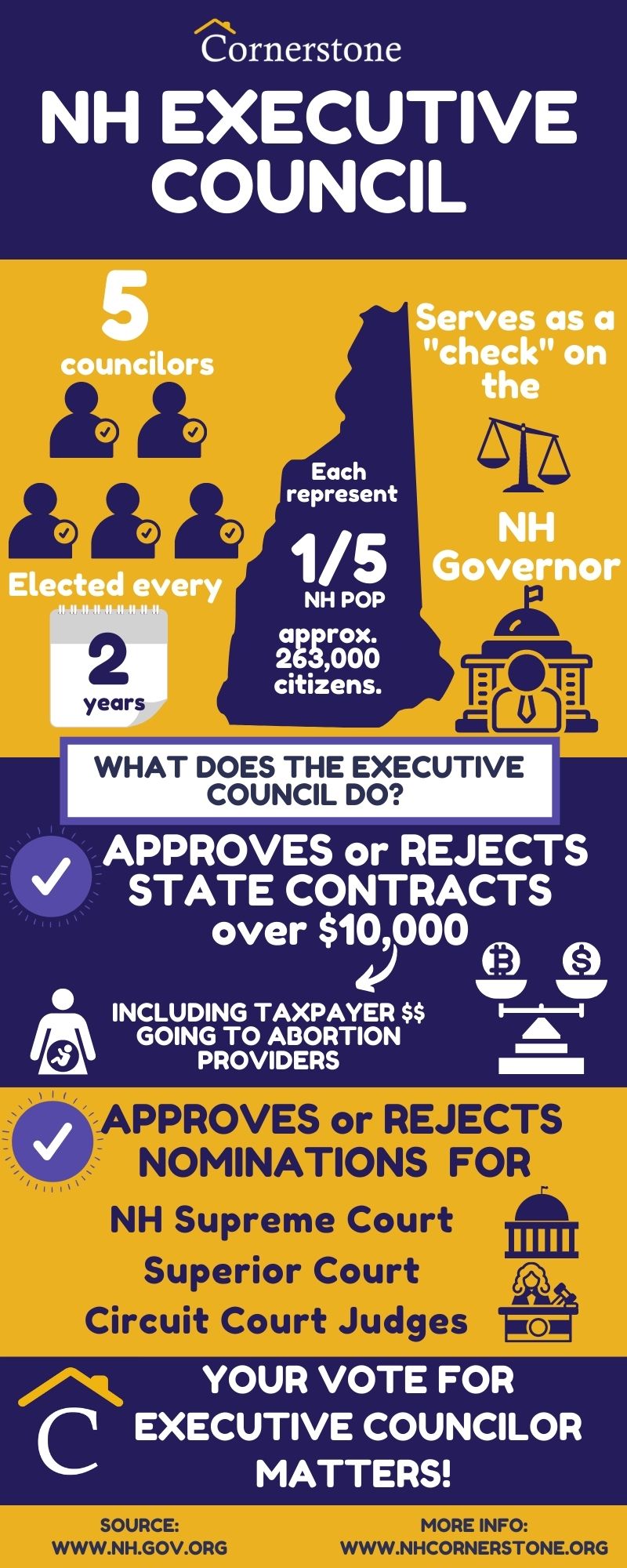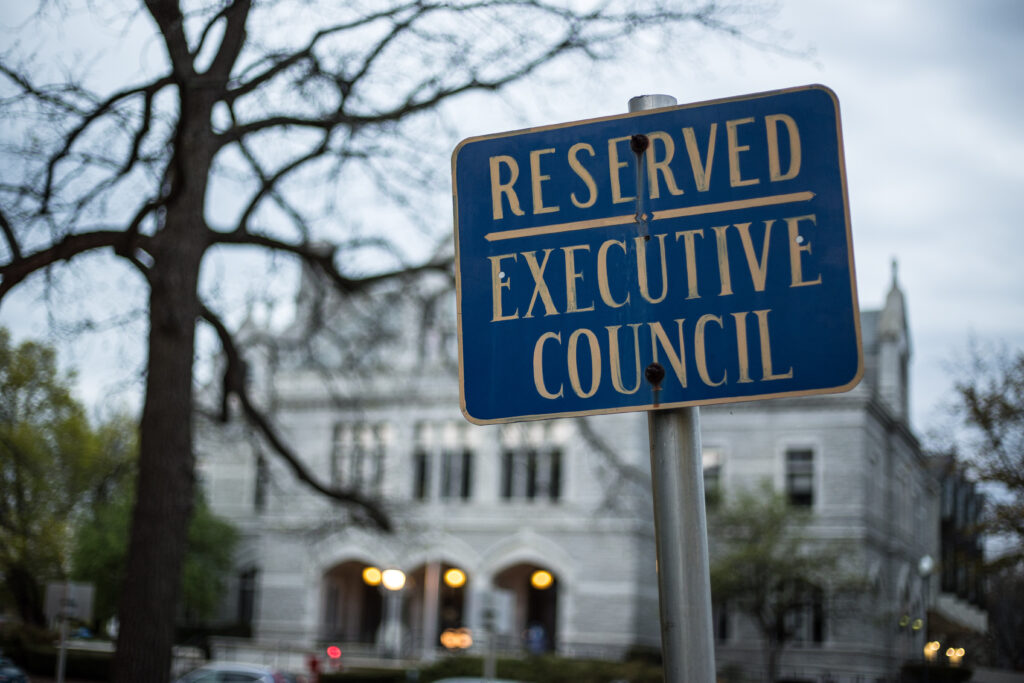Why you should care about the Executive Council race this November Election
If you ask the typical New Hampshire citizen who has the final say over state matters, they’re likely to answer, “the Governor.” After all, the Governor can veto legislation, proposes the budget, and oversees every agency. But that answer is only part of the equation.
Take supreme court nominees. The supreme court isn’t just a national conversation, it is a state one. Who serves on the court and how they see their role in our government has profound implications for how our constitution is either upheld or potentially reinterpreted to serve a larger agenda. And, today, for better or worse, where a candidate stands on abortion is seen as an important litmus test (which tells you how far we’ve strayed from an originalist approach to the constitution). So, how will our new Governor select our state-level nominees?
According to news reports, Sen. Dan Feltes, the Democratic nominee for Governor of New Hampshire:
“vowed he’d name a female abortion rights supporter to serve on the New Hampshire Supreme Court and he assailed the ‘pro-choice’ credentials of Republican Gov. Chris Sununu.”
Not to be outdone, here’s what a campaign spokesman for incumbent Gov. Chris Sununu said in response:
“No matter how much they lie, the fact remains that Chris Sununu supports a women’s right to choose and would oppose any attempt at the state level to overturn or repeal Roe v Wade. End of story.”
Fortunately, that’s not the end of the story for New Hampshire voters. There’s an elected body in the state that just might render both candidates’ positions irrelevant. That body is the Executive Council. The Executive Council isn’t just a group of advisors. Its members wield real power in the state and serve as a check on the Governor. Whether we’re talking about significant state contracts, pardons, or judicial nominations, it’s the Executive Council who has the final say. If that surprises you, you are far from alone. In fact, the power of New Hampshire’s Executive Council is unmatched by any other similar state body in the country.
Lest you have any doubts, consider that New Hampshire has had a Supreme Court vacancy for over a year. Governor Sununu nominated Attorney General Gordon MacDonald to fill the seat. The Council turned thumbs down along party lines, and that decision was final. The seat is still vacant. The New Hampshire Constitution imposed the Council as a check on the Governor: without confirmation from three of five Councilors, a nomination is dead.
So, while a governor can create all kinds of litmus tests for judicial nominees, without support from three of the five Executive Councilors, the “litmus test” is meaningless. Being “pro-choice” doesn’t matter unless there are three Councilors who agree.
And would you be surprised to know it is the Executive Council, not the Governor, who makes the final decision on department heads? For example, a shift of a single Council vote back in early 2017 would have deprived New Hampshire students and families of the innovative leadership of Education Commissioner Frank Edelblut.
If he unseats Gov. Sununu, Sen. Feltes’s commitment to name “an abortion rights supporter” to New Hampshire’s highest court will need support from three Executive Councilors. All it will take is a 3-2 vote either to confirm or reject the nominee. Who serves on the Council matters.
The Council’s authority doesn’t end there. Council members also vote on the state contracts required to carry out the budgetary decisions of the legislature. Again, each contract requires a Council majority for approval. The Governor doesn’t have any role beyond naming the department heads who negotiate each proposed contract – and even those department heads have to get approval from the Council before taking their jobs. Take a moment to let that sink in.So, knowing how important the Council race is, what can you as a voter expect to see on your ballot in November? There are five Council districts. Each voter will see one Council race on the ballot. Each Council candidate deserves the highest scrutiny. An abortion-friendly Governor’s hands will be essentially tied if three pro-life Councilors are elected. Conversely, a Governor who supports education freedom for students can be stymied by three Councilors opposed to giving parents flexible schooling options.
The time to pose hard questions to Council candidates is now, especially considering these five individuals have serious constitutional authority in the state. That said, it’s important for voters to pay attention to all down-ballot races, not only the Senate and House, but county and town-level positions.
In November, voters won’t be just selecting the next Governor and their legislators, they will be deciding who will fill our five Council seats. We hope you agree with us that this is arguably New Hampshire’s most significant down-ballot race. As a voter who is serious about the direction our state is taking, you need to be just as serious about who you send to serve on the Executive Council.
Voters who do give the Executive Council and all down-ballot races the attention they deserve will be making sure that the authority we entrust these individuals with is used to serve the people. Voters who skip down-ballot races risk handing that power to people who will be all too happy to accommodate their own “litmus tests.”
New Hampshire deserves better.



